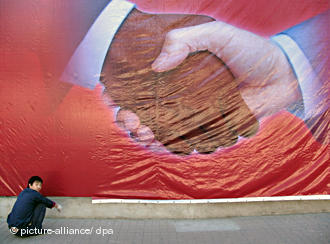Cet article est également disponible en :


For Africa, a continent well endowed with enormous geological and mining resources, the impact of these rising prices is both positive and negative. The positive aspect is related to the fact that the region is experiencing economic growth rates above 5% since 2004 while, at the same time, oil producers countries are seeing their export earnings increase substantially. According to the U.S. Department of Energy, oil imports from the US should earn African oil producers about $ 200 billion over a decade. These estimations were based on a price of a barrel of oil of 20 dollars. Now that it exceeds 100 dollars, and if we take into account the revenues derived from exports to China which imports 30% of its oil supply from Africa, one can easily imagine the enormous amount of money that will flood the coffers of some African Treasuries, especially if one factors all the other exports.
The negative aspect of the rising prices of raw materials relates to the appreciation of real exchange rates in oil export countries which crucify agricultural exports and triggers a wave of price increases particularly damaging in the food sector. The increase in the cost of living in African countries net oil-importers has destroyed what little progress they had made in recent years. The African Development Bank (ADB) has estimated that the economic activities of these countries may suffer a contraction of up to 20%.
The increase of the price of food has also triggered food riots and death in countries such as Egypt, Côte d’Ivoire, Cameroon, Burkina Faso, Senegal, Mauritania and Madagascar. Clearly, the list of countries overwhelmed by these riots will increase. The World Bank estimates that 33 countries could experience political turmoil and social unrest because of the sharp rise in the prices of food and energy.
To sustain the current economic progress, while offsetting the adverse effects of the rising food and oil prices, countries in sub-Saharan Africa should translate into practice the budget solidarity enshrined in the provisions of all regional organisations in order to diversify and modernise their economies. To do so, they must break with the international division of labour which confines them to the role of producers of raw materials and excludes them from any industrialisation process. Their accession to “independence” in the late 1950s and early 1960s did not change this order. With only embryos of domestic capital markets, unable to raise funds other than those from multilateral banks, bilateral sources and commercial banks, these countries remain trapped into a web of comprehensive and exploitative trade deals, western market access restrictions, denial of borrowing on international markets, aid addiction, restrictive domestic investment, crippling debts, political meddling and military intervention. To escape from the trap they are locked in they would be better off creating a pan-African Confederation for the management of their resources. This organisation would pursue three objectives:
- First, to regulate the prices of raw materials which have been subject to downward or upward trend depending on the circumstances, the needs and the whims of speculators;
- Second, to allow Africa to break free from neo-liberal economics as advocated by the Bretton Wood institutions in order to establish an alternative development strategy for the modernization and the diversification of their economies. Such a strategy should be based on planned, regulated and controlled economic management. Subsidising key economic sectors such as health, education, food production and research and protecting infant industries would complement this range of measures in the early stage of development;
- Third, to give to the African Union member countries the resources they need to build their economic, monetary and political union: a costly and lengthy process which requires political will, unwavering commitment and enormous financial resources.


